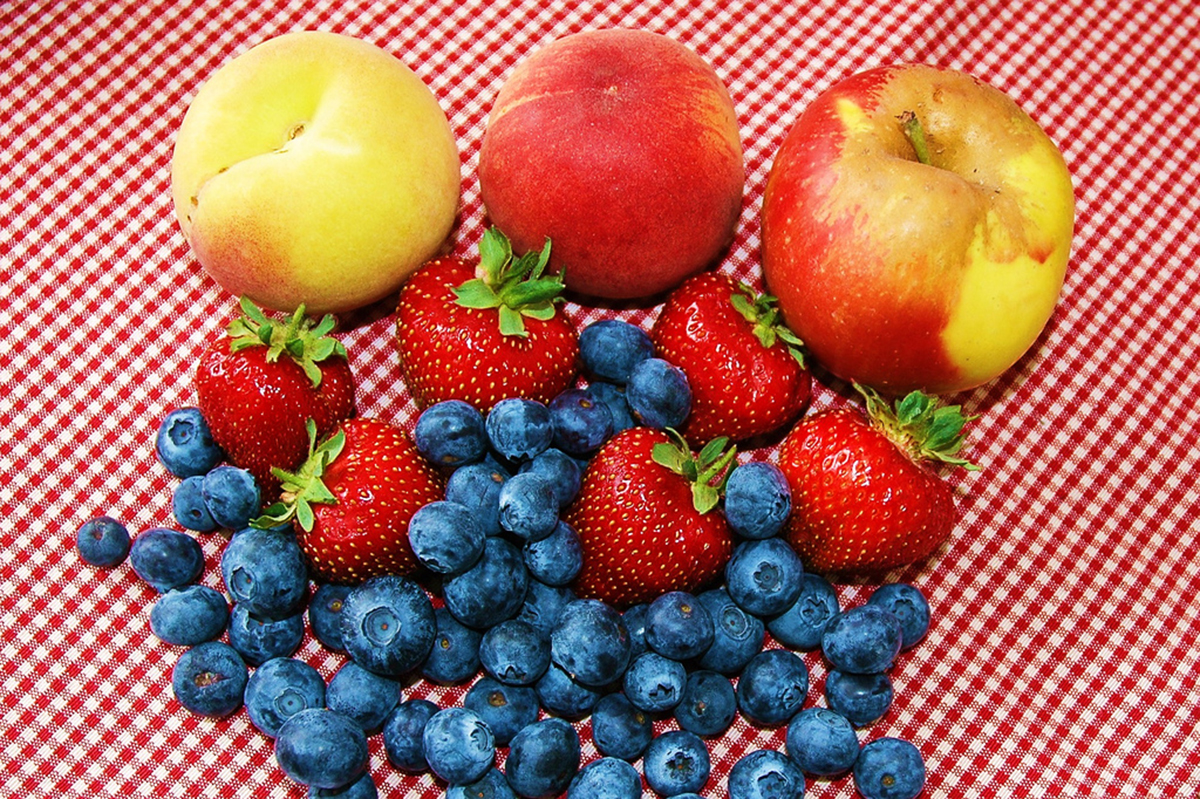Phyto (Greek word meaning "plant") nutrients as the name suggests, refers to certain organic molecules obtained from plant sources that are believed promote better health. Plants are known to contain a number of bioactive components which can improve the functioning of the human body. Plant products including fruits, vegetables, nuts, legumes, grains and teas are some of the richest natural sources of phytonutrients. Phytonutrients are also referred to as phytochemicals as these components are nothing but a certain type of bioactive chemicals.

Common Classes of Phytonutrients
According to the United States Department of Agriculture (USDA), some of the most common phytonutrients present in plant products have been categorized as:
- Carotenoids
- Flavonoids (polyphenols)
- Lignans (phytoestrogens)
- Isoflavones (phytoestrogens)
- Isothiocyanates and Indoles
- Saponins
- Terpenes
Many other phytonutrients, and different plant-based foods may contain a combination of these compounds. A diet rich in a variety of colorful fruits, vegetables, whole grains, nuts, and seeds can provide a broad spectrum of phytonutrients, supporting overall health and well-being.
Common Benefits of Phytonutrients
The benefits of phytonutrients have been studied widely and it has been noted that these bioactive compounds exert a wide range of effects on our body. The benefits of phytonutrients range from uses treating the common cold to prevention of cancers. Phytonutrients are basically bioactive chemicals that exert their effects at cellular levels resulting in the improvement of health. Most researchers believe that phytonutrients exert their benefits based on the following mechanisms.1, 2
- Antioxidant effects
- Enhancement of immunity
- Alteration in estrogen metabolism
- Improvement in communication between cells
- Effects on cancer cells (restricting growth and spreading and causing death in cancer cells)
- Ability to repair DNA damage
- Detoxification of cancer causing cells or toxins
Phytonutrients Role in Immunity
One of the ways in which phytonutrients are believed to have a beneficial effect on human health is through the boosting the immune system. The immune system must be healthy to ward off the infection causing microorganisms and their toxic products. Studies are being conducted to identify the specific mechanism of action by which the phytonutrients enhance the immune response.
A study conducted in Austria evaluated the benefits of supplementation of phytonutrients in trained individuals over a period of 6 months.By the end of the study, it was noted that administration of phytonutrients in the form of juice powder encapsulated tablets significantly reduced the number of duty days lost due to illness and, also enhanced the immune system. Thereby, it can be concluded that, supplementation of phytonutrients or consumption of a diet rich in fruits and vegetables can be beneficial in boosting the immune system.
Read More: Carotenoids Prevent Cancer And Infections And Have Positive Effect On The Immune System
Another study conducted by the doctors at the University of Florida, Gainesville reported similar results at the end of the 77-day study.5 The study results revealed that the administration of fruit and vegetable juice powder concentrate increased the T-cells by about 30%, and decreased the DNA damage in lymphocytes by about 40%. Hence it was concluded the phytonutrients present in fruits and vegetables do have an immune boosting effect, by decreasing the injury and enhancing the number of immune cells.
In another study titled "Effect of phytonutrient supplementation on immune response in healthy adults"6, researchers investigated the impact of a phytonutrient supplement on immune function in healthy adults. The supplement contained a combination of phytonutrients, including quercetin, green tea extract, and grape seed extract. The results showed that participants who received the phytonutrient supplement had a significant increase in the activity of natural killer (NK) cells, which play a crucial role in the body's defense against viruses and tumor cells. The phytonutrients also reduced the incidence of upper respiratory tract infections in the supplemented group compared to the placebo group, suggesting an improvement in overall immune function.
Incorporating a diverse range of colorful fruits, vegetables, nuts, seeds, and whole grains into your diet can help you obtain a variety of phytonutrients to support your immune system. However, it's essential to remember that while diet plays a crucial role in overall health, it should be complemented by other lifestyle factors such as regular exercise, adequate sleep, and stress management for optimal immune function.
- 1. United States Department of Agriculture (USDA). Phytonutrient FAQs. [updated: Apr 2005, accessed: Sep 2009]. Available from: http://www.ars.usda.gov/Aboutus/docs.htm?docid=4142
- 2. Saunders K. The vegan diet as chronic disease prevention. New York: Lantern Books, 2003
- 3. Duyff RL, American Dietetic Association. American Dietetic Association complete food and nutrition guide. 3rd ed. John Wiley and Sons, 2006
- 4. Lamprecht M, Oettl K, Schwaberger G, Hofmann P, Greilberger JF. Several indicators of oxidative stress, immunity, and illness improved in trained men consuming an encapsulated juice powder concentrate for 28 weeks. J Nutr. 2007 Dec, 137(12):2737-41
- 5. Nantz MP, Rowe CA, Nieves C Jr, Percival SS. Immunity and antioxidant capacity in humans is enhanced by consumption of a dried, encapsulated fruit and vegetable juice concentrate. J Nutr. 2006 Oct, 136(10):2606-10
- 6. Nieman D.C., Henson D.A., Davis J.M., et al., Am J Clin Nutr, 2002 Aug,76(2):571-7
- Photo courtesy of Nick Nosurname by Flickr : www.flickr.com/photos/fotomaker/551271381/


Your thoughts on this